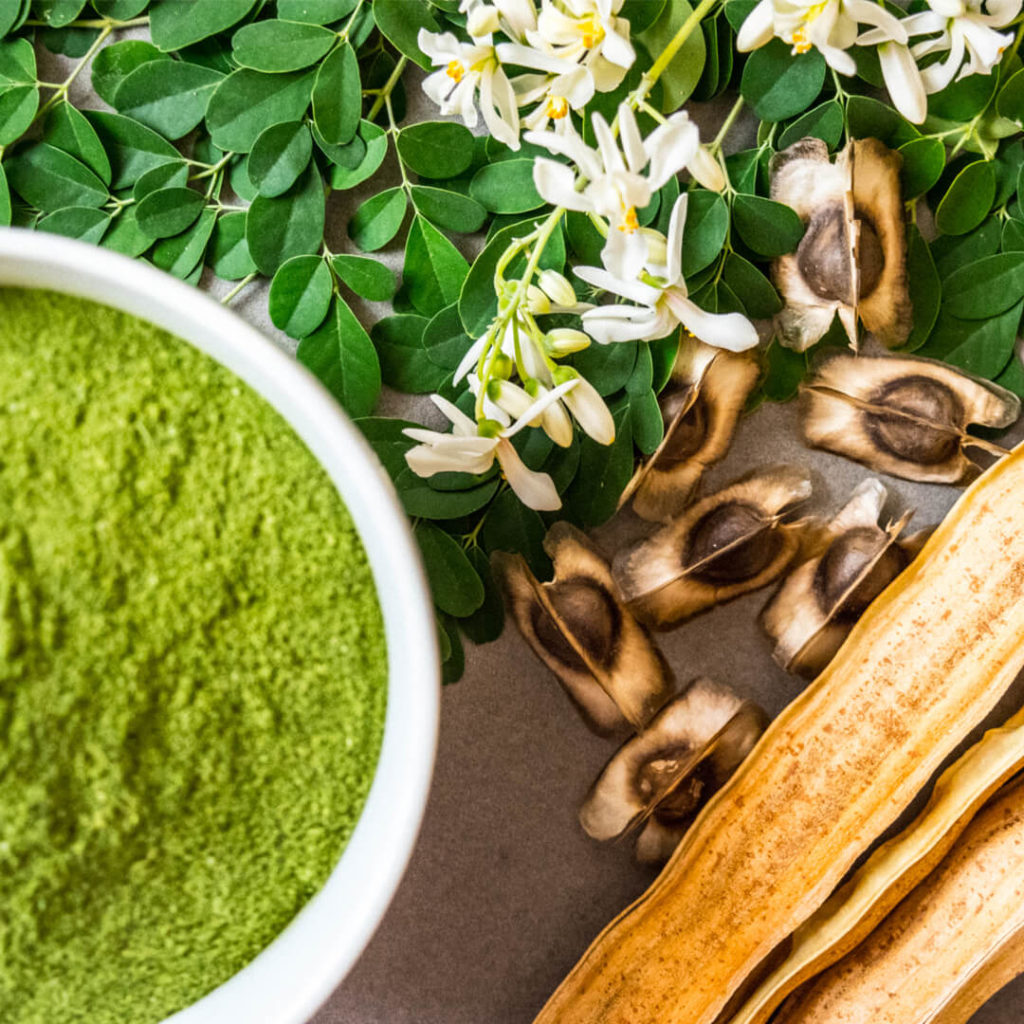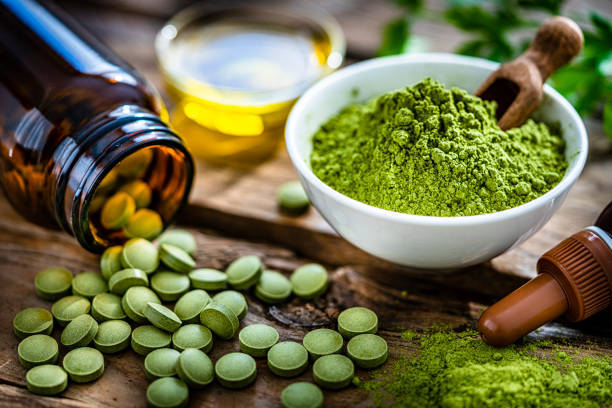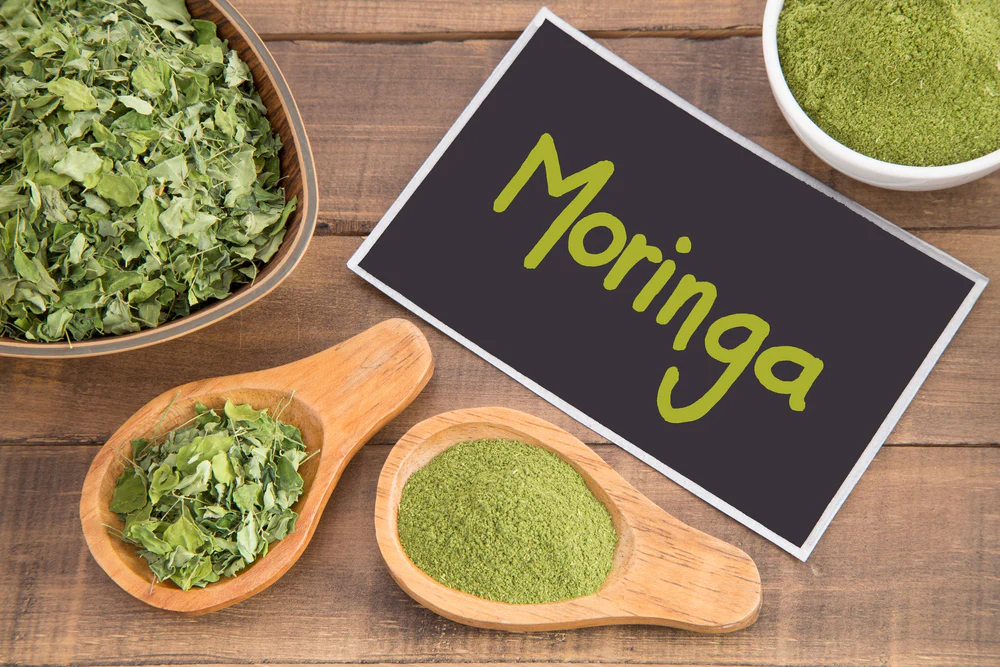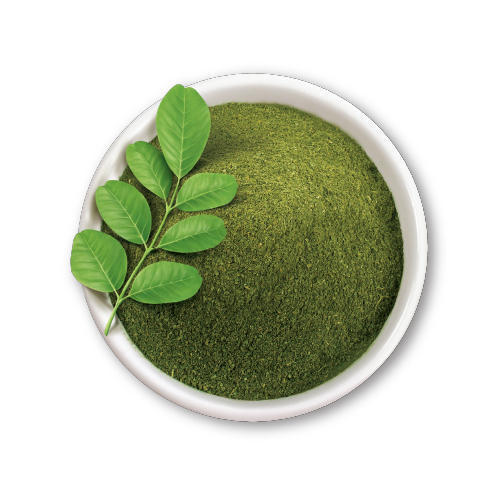Moringa, often hailed as a miraculous plant, has gained significant attention for its potential health benefits. This article delves into the rich nutritional profile, health advantages, ways to integrate it into your diet, its environmental impact, and more.
Table of Contents
Introduction to Mighty Moringa
Moringa, scientifically known as Moringa oleifera, is a powerhouse of nutrients and antioxidants. Originating from the Himalayas, it’s now cultivated in various tropical and subtropical regions worldwide. Its leaves, pods, and seeds offer a treasure trove of essential vitamins and minerals.
Understanding Moringa’s Nutritional Profile
Moringa oleifera, commonly known as moringa, is a plant that has been praised for its health benefits for thousands of years. It is highly valued for its nutritional profile, containing a variety of proteins, vitamins, and minerals. Understanding moringa’s nutritional profile helps highlight why it’s considered a superfood and how it supports health and wellness. Here’s a detailed look at what moringa offers nutritionally:
Vitamins
- Vitamin A: Essential for healthy vision, immune function, and skin health. Moringa leaves are rich in beta-carotene, a compound that the body converts into vitamin A.
- Vitamin C: Supports the immune system, antioxidant function, and skin health by aiding in collagen production. Moringa contains a high level of vitamin C, surpassing even oranges in concentration per gram.
- Vitamin E: A powerful antioxidant that protects cells from oxidative stress. Moringa leaves contain significant amounts of vitamin E.
Minerals
- Calcium: Essential for bone health, muscle function, and nerve signaling. Moringa leaves are a good plant-based source of calcium.
- Potassium: Important for blood pressure regulation, fluid balance, and muscle and nerve function. Moringa contains more potassium than bananas.
- Iron: Crucial for the formation of hemoglobin and oxygen transport in the blood. Moringa leaves are an excellent source of iron, especially important for vegetarians and vegans.
- Magnesium: Involved in over 300 enzymatic reactions, including energy creation, muscle movement, and nervous system regulation. Moringa provides a healthy dose of magnesium.
Proteins and Amino Acids
- Moringa contains all nine essential amino acids, making it a rare plant-based source of complete protein. This is particularly valuable for those following a vegetarian or vegan diet.
Antioxidants
- Quercetin: An antioxidant that may help lower blood pressure.
- Chlorogenic Acid: Also found in high amounts in coffee, chlorogenic acid may help moderate blood sugar levels after meals.
- Beta-Carotene: A precursor to vitamin A, important for vision, growth, and immune function.
- Zeatin: A plant hormone found in moringa that has been studied for its antioxidant properties.
Fiber
- Moringa leaves contain a good amount of fiber, which is beneficial for digestive health.
Phytonutrients
- Moringa is rich in various phytonutrients and bioactive compounds that have anti-inflammatory and protective properties, contributing to its health benefits.
Comparisons
- When compared to common fruits and vegetables, moringa often contains higher concentrations of several essential nutrients. For example, gram for gram, moringa leaves contain more vitamin C than oranges, more potassium than bananas, more calcium than milk, and more iron than spinach.
Considerations
While moringa is a powerhouse of nutrients, how much to consume depends on individual health goals and dietary needs. It’s important to integrate moringa as part of a balanced diet to fully benefit from its nutritional offerings. As with any supplement, it’s wise to consult with a healthcare provider, especially if you have health conditions or are pregnant or breastfeeding, to ensure that moringa powder is a safe and beneficial addition to your diet.

Health Benefits of Consuming Moringa
Moringa oleifera, commonly known as moringa, is a plant that has been appreciated for its remarkable range of medicinal and health benefits. Rich in vitamins, minerals, and other bioactive compounds, moringa offers numerous health advantages when incorporated into the diet. Here are some of the key health benefits of consuming moringa:
1. Rich in Nutrients
Moringa leaves are packed with vitamins and minerals. They are particularly high in vitamins A, C, and E, calcium, potassium, and iron, making moringa an excellent supplement to improve nutrient intake and prevent deficiencies.
2. Powerful Antioxidant Effects
Moringa contains antioxidants such as quercetin, chlorogenic acid, and beta-carotene. These compounds help combat oxidative stress, which can lead to chronic diseases like type 2 diabetes, heart disease, and Alzheimer’s. Antioxidants neutralize harmful free radicals and can have an overall protective effect on the body.
3. May Lower Blood Sugar Levels
Several studies have shown that moringa can help lower blood sugar levels, which is beneficial for managing diabetes. The plant compounds found in moringa, including isothiocyanates, have been shown to help reduce glucose levels, making it a natural aid for blood sugar regulation.
4. Anti-inflammatory Properties
Chronic inflammation is associated with many chronic diseases, and moringa contains isothiocyanates, which are known for their anti-inflammatory properties. By reducing inflammation, moringa can help protect against conditions such as heart disease and cancer.
5. Can Lower Cholesterol
High cholesterol is linked to an increased risk of heart disease. Moringa has been found to have cholesterol-lowering properties, similar to those of almonds, oats, and flaxseeds, which can help prevent heart disease.
6. Supports Brain Health
Thanks to its antioxidant and neuroenhancer activities, moringa may support brain health and cognitive function. It has been studied for its potential in preventing neurodegenerative diseases and enhancing brain function, including memory and mood.
7. Protects the Liver
Moringa can reduce liver damage and fibrosis and improve liver function due to its high concentration of polyphenols. It supports the liver in its key roles, including detoxification, fat metabolism, and nutrient processing.
8. Promotes Wound Healing
The leaves, roots, and seeds of the moringa plant have blood-clotting properties, which can benefit wound healing. They help reduce clotting time, which means they help wounds heal faster and reduce the chance of infection.
9. May Have Antimicrobial and Antibacterial Properties
Moringa extracts have been shown to have antimicrobial and antibacterial properties, which can help fight infections caused by various pathogens, including bacteria and fungi.
10. Supports Weight Loss
Moringa can enhance fat metabolism, making it useful for weight management. Its high fiber content also helps in reducing food cravings by promoting a feeling of fullness, which can aid in weight loss efforts.
11. Improves Digestive Health
The fiber found in moringa can help maintain a healthy digestive system, prevent constipation, and support a healthy gut microbiome.
Incorporating moringa into your diet can be a natural way to boost your overall health, thanks to its comprehensive nutritional profile and health benefits. However, it’s important to consume it as part of a balanced diet and consult with a healthcare provider before starting any new supplement, especially for individuals with existing health conditions or those who are pregnant or breastfeeding.

Incorporating Moringa into Your Diet
Incorporating moringa into your diet is a straightforward and versatile way to boost your intake of vitamins, minerals, and antioxidants. Moringa powder, made from dried and ground moringa leaves, is an easy-to-use supplement that can be added to a variety of dishes, beverages, and even snacks. Here are practical and delicious ways to include moringa in your daily diet:
1. Start with Smoothies
One of the simplest ways to use moringa powder is by adding it to smoothies. Its mild flavor blends well with most ingredients, so you can add a teaspoon of moringa powder to your favorite smoothie recipe for a nutrient boost.
2. Mix into Juices and Teas
Stir moringa powder into fresh juices or herbal teas. It dissolves easily in liquids, making it a convenient way to enrich your drinks with essential nutrients.
3. Enhance Your Breakfast
Sprinkle moringa powder over oatmeal, yogurt, or cereal. Its subtle flavor won’t overpower your breakfast, and it’s an effortless method to start your day nutritiously.
4. Bake with It
Incorporate moringa powder into baked goods such as bread, muffins, or pancakes. Adding a tablespoon of moringa powder to the batter not only enhances the nutritional value but also gives your baked goods an interesting green hue.
5. Use in Soups and Stews
Moringa powder can easily be stirred into soups, stews, and sauces. It acts as a thickening agent while also boosting the meal’s vitamin and mineral content.
6. Salad Dressings
Create a healthy salad dressing by whisking together olive oil, vinegar, lemon juice, and a teaspoon of moringa powder. This dressing can be drizzled over salads or used as a marinade for vegetables.
7. Energy Bars and Snacks
For a quick, nutritious snack, add moringa powder to homemade energy bars or balls. Combine with nuts, seeds, dried fruit, and a binder like honey or peanut butter for a healthy, on-the-go snack.
8. Stir into Pasta and Grains
Mix moringa powder into cooked pasta, rice, or quinoa. It adds nutrients without compromising the taste of your dish.
9. Make a Moringa Latte
For a warming drink, whisk a teaspoon of moringa powder into a cup of hot milk (dairy or plant-based) with a little honey or maple syrup for sweetness. Enjoy it as a nutritious alternative to coffee or green tea.
10. Spice up Your Dishes
Use moringa powder as a seasoning for meats, vegetables, or any savory dish. Its earthy flavor complements a wide range of foods.
Tips for Incorporating Moringa
- Start Slowly: Begin with a small amount of moringa powder to see how your body reacts and to get used to its taste.
- Quality Matters: Look for high-quality, organic moringa powder to ensure it’s free from contaminants and retains its nutritional value.
- Consult a Healthcare Provider: Before adding moringa to your diet, especially if you have health conditions or are pregnant, consult with a healthcare professional.
Moringa is a versatile supplement that fits easily into any diet. Its mild flavor and impressive nutrient profile make it an excellent addition to both sweet and savory dishes, helping you achieve a more balanced and nutritious diet.
Sustainability and Environmental Impact of Moringa Cultivation
Moringa oleifera, commonly known as the moringa tree, is increasingly recognized not only for its nutritional and health benefits but also for its sustainability and positive environmental impact. The cultivation of moringa contributes to sustainable agriculture and environmental conservation in several significant ways:
1. Low Water Requirement
Moringa trees are highly drought-resistant, thriving in arid and semi-arid regions where water scarcity is a common issue. Their ability to grow with minimal water inputs makes them an ideal crop for sustainable farming practices, especially in areas vulnerable to drought and desertification.
2. Soil Conservation
The deep root system of the moringa tree helps in preventing soil erosion, an important feature for maintaining soil health and preventing land degradation. Moreover, the leaves and stems of the moringa tree, when used as green manure, can enrich the soil with nutrients, improving soil fertility and helping in the restoration of degraded lands.
3. Carbon Sequestration
Moringa trees contribute to carbon sequestration by absorbing carbon dioxide from the atmosphere, which helps mitigate climate change. Their fast growth rate and dense foliage make them efficient at capturing carbon, supporting efforts to reduce atmospheric CO2 levels.
4. Biodiversity Support
The cultivation of moringa trees can support biodiversity in agricultural landscapes. Moringa trees can be integrated into agroforestry systems, where they coexist with other crops and animal species, creating a more diverse and resilient ecosystem. This diversity can help sustain pollinator populations and other beneficial organisms, contributing to the overall health of the environment.
5. Sustainable Production and Economic Benefits
Moringa cultivation offers economic benefits with minimal environmental impact. The tree’s various parts (leaves, seeds, oil, and bark) can be used for food, oil production, water purification, and even as natural medicine, providing multiple revenue streams for farmers. This versatility encourages the sustainable use of resources, as virtually no part of the tree goes to waste.
6. Low Input Farming
Moringa trees require minimal fertilizers and pesticides, reducing the need for chemical inputs in farming. This not only lowers the cost of cultivation but also minimizes the environmental pollution associated with agricultural chemicals.
7. Energy and Water Purification
Moringa seeds contain oil that can be used as a biofuel, providing a renewable energy source. Additionally, the seeds have been shown to be effective in water purification, helping to improve water quality in regions lacking access to clean water, thus reducing reliance on chemical water treatment methods.
8. Climate Resilience
The resilience of moringa trees to harsh growing conditions makes them a valuable crop for adapting to the impacts of climate change. Their cultivation can help ensure food security in vulnerable regions by providing a reliable source of nutrition and income in the face of changing climate patterns.

Source to Get Organic Moringa Leaf Powder Capsules
Conclusion
Moringa stands tall as a nutritional powerhouse, offering a multitude of health benefits and sustainable cultivation practices. Integrating it into your diet could potentially pave the way for a healthier lifestyle.
FAQs
- Is Moringa safe for everyone to consume?
- Moringa is generally safe for most people when consumed in moderation. However, individuals on medication or pregnant women should consult a healthcare professional before incorporating it into their diet.
- How can I use Moringa in my daily routine?
- You can add Moringa powder to smoothies, sprinkle it on salads, or brew it into tea for easy incorporation into your daily meals.
- Are there any side effects of consuming Moringa?
- While rare, some individuals might experience digestive issues or allergic reactions. It’s advisable to start with small amounts to assess tolerance.
- Can Moringa help with weight loss?
- There’s limited evidence supporting direct weight loss, but its nutrient density and potential to increase energy levels might indirectly support weight management.
- Where can I find high-quality Moringa products?
- Reputable health food stores, online retailers, and certified organic suppliers often offer quality Moringa products.
